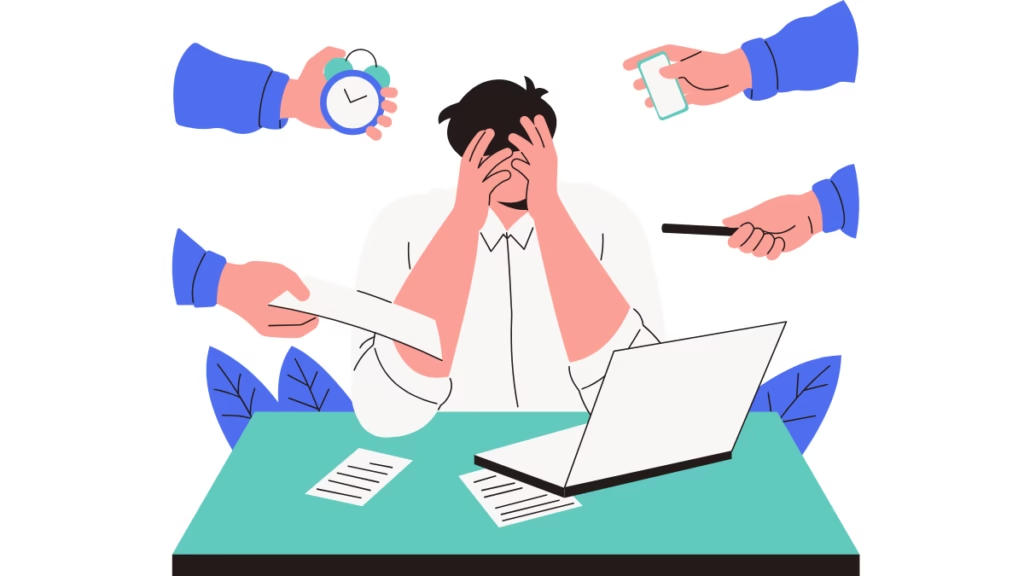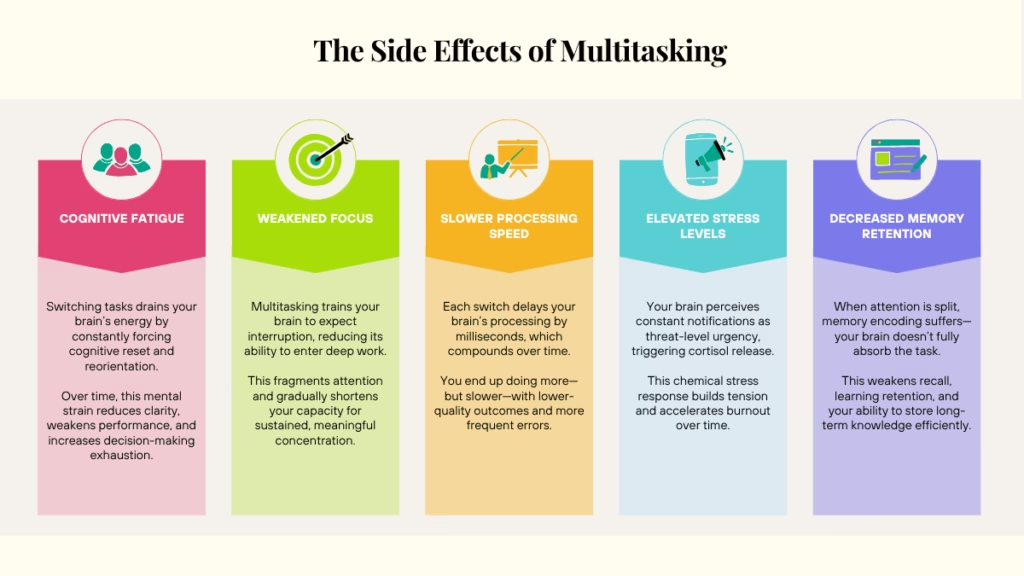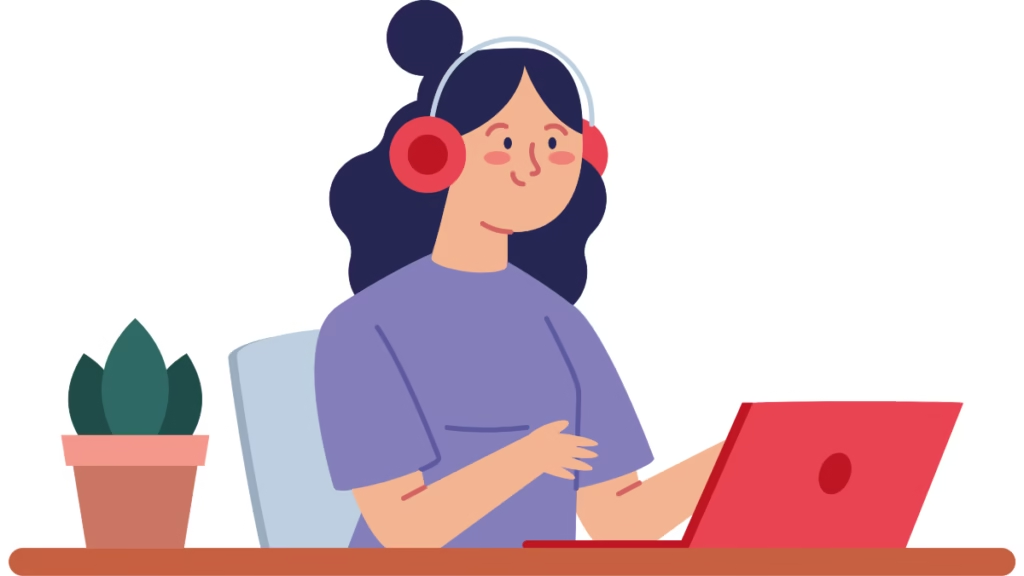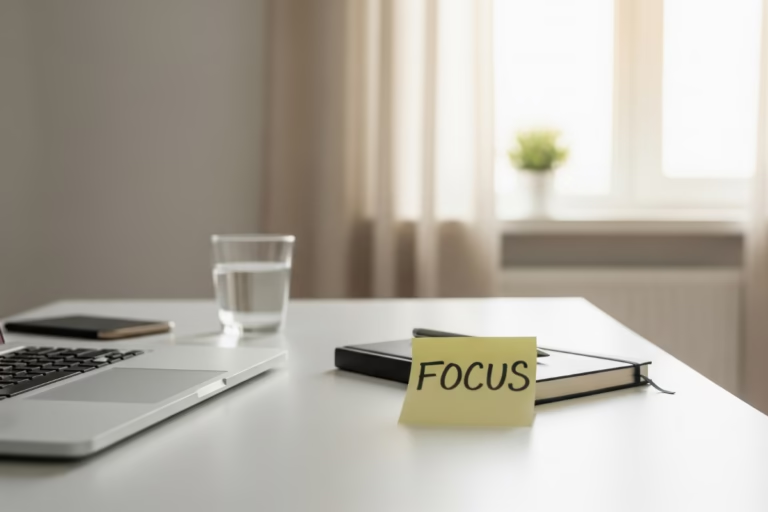Is Multitasking Good for Your Brain? What Neuroscience Actually Says
You’ve heard that multitasking makes you more efficient. But is multitasking good for your brain—or is it eroding your ability to concentrate, retain information, and produce meaningful work?
Research shows that task switching increases cognitive load, shrinks attention span, and limits your ability to enter deep work states. The truth? Your brain isn’t wired to juggle complex tasks simultaneously.
In this article, we’ll unpack the neuroscience of multitasking, explore the toll it takes on memory and focus, and offer smarter alternatives rooted in performance psychology and systems thinking.
What Neuroscience Reveals About Multitasking
The Myth: No One Can Truly Multitask
Your brain is not wired to focus on multiple complex tasks at once. What feels like multitasking is actually rapid task switching. Each switch comes with a switch cost—a moment where your brain disengages from one task before refocusing on another. These micro-transitions add up, fragmenting your attention and increasing mental fatigue.
MRI studies reveal that multitasking activates the prefrontal cortex and parietal lobes, forcing them to toggle between task sets. This reduces efficiency and increases the likelihood of mistakes. Instead of doing more in less time, you do less with more effort.
How Switch-Costs Drain Productivity
Switching tasks creates cognitive residue. Even after moving on, part of your brain remains occupied with the previous task. This mental drag disrupts flow, reduces retention, and increases stress—especially in high-stakes or creative work. If you want to rebuild momentum and regain clarity, you need to enter a sustained flow state while working.
A better question than “is multitasking good for your brain?” might be: what does it cost you in performance, clarity, and depth?


The Cognitive Toll of Multitasking
Stress, Working Memory & Prefrontal Load
The more you switch, the harder your working memory works. The prefrontal cortex, responsible for decision-making and executive control, becomes overloaded. This constant re-engagement elevates cortisol levels and taxes your mental stamina.
Chronic multitasking is linked to reduced emotional regulation and an increased sense of overwhelm. It’s not just inefficient—it’s unsustainable. If you’ve been wondering, “Is multitasking good for your brain in fast-paced environments?” — the answer is no. It erodes the very mental systems high performers rely on.
Effects on Brain Structure & Attention Span
Research shows that habitual multitaskers have less density in the anterior cingulate cortex, the region responsible for empathy, focus, and emotional control. Long-term multitasking can rewire your brain to crave novelty—making sustained attention feel uncomfortable.
It also reinforces the Default Mode Network, a brain system that becomes active during rest or mind-wandering. If multitasking is your default, your brain begins to seek distraction as a baseline.
Who, If Anyone, Can Multitask Well?
Supertaskers: The Rare Outliers
A tiny portion of the population—less than 2%—are classified as supertaskers. These individuals show near-zero performance drops when switching tasks. But their brains function differently. They exhibit increased activity in the executive control network and superior memory coordination.
For the other 98%, multitasking is a cognitive liability, not a strength.
Can Practice Improve Switching Ability?
While you can train aspects of attention control and recovery time, practice does not eliminate the switch cost. Instead, you get faster at recovering—not better at multitasking. Even seasoned professionals in high-interruption fields (like air traffic controllers) rely on checklists and systems to reduce the chaos—not embrace it. So, is multitasking good for your brain just because you’re skilled? Not quite — skill doesn’t override biology.
When Multitasking Might Be Useful
Automated Tasks vs. Complex Work
Multitasking is most tolerable when one task is cognitively automatic—like walking while listening to a podcast. But once both tasks require executive function, performance drops sharply.
For example, answering emails while writing a strategy plan may feel efficient, but it splits attention. You’re not multitasking—you’re interrupting your own depth.
Digital Environments & Continuous Partial Attention
The modern workspace encourages continuous partial attention—the act of never fully focusing, but always staying digitally responsive. While useful for social media management or reactive workflows, it’s a drain on deep cognitive processes.
In a high-performance context, the cost of divided attention compounds over time. Multitasking is not neutral—it’s a daily withdrawal from your mental bank.
And for those asking “is multitasking good for your brain in digital workflows”, the data says otherwise—it fragments attention and drains cognitive capacity.


Better Alternatives: Single-Tasking & Focus Strategies
Monotasking & the Deep Work Advantage
Monotasking, or single-tasking, enables the brain to fully engage with one objective. This promotes neural efficiency, deeper insight, and higher-quality output. It’s the foundation of deep work, a concept popularized by Cal Newport, which emphasizes distraction-free focus on cognitively demanding tasks.
Neuroscience supports this approach: sustained attention activates the executive control network and strengthens neuroplasticity, leading to long-term gains in cognitive performance.
Techniques: Time Blocks, Digital Detox, Attentional Control
- Time blocking: Allocate uninterrupted windows to specific tasks.
- Digital detox: Silence notifications, close tabs, and remove ambient distractions.
- Attentional control training: Use mindfulness or visual focus exercises to condition your mind to resist impulse switching.
These are not trendy hacks. They’re how you rebuild the capacity that multitasking erodes.
Practical Tips: Protect Your Cognitive Health
Minimize Interruptions & Batch Tasks
Interruptions don’t just pause your workflow—they reset your mental state. To minimize this:
- Batch similar tasks together
- Schedule “inbox time” to avoid reactive checking
- Use tools like Freedom or One Sec to delay impulsive app openings
When people ask “is multitasking good for your brain,” they’re often struggling with constant interruptions. The fix isn’t working harder—it’s protecting attention.
Building better cognitive recovery habits—like movement, hydration, and stillness—can dramatically improve focus over time. For a deeper breakdown, see our guide on how to improve focus and concentration naturally.
Build Recovery Breaks into Your Day
Just like muscles, your brain needs recovery. High-performance doesn’t mean non-stop. Integrate:
- Walks between deep work sessions
- Eye breaks (20–20–20 rule)
- Light mental resets like breathing or journaling
Recovery isn’t a reward. It’s a prerequisite for sustained focus and longevity.


Final Thoughts: Don’t Multitask—Master Your Focus
So, is multitasking good for your brain in the long run? The evidence is clear: deep focus builds capacity; divided attention tears it down.
Understanding Your Brain’s Limits
Your brain has a finite cognitive load. Multitasking burns it quickly, leaving less for what matters. Understanding this isn’t about limitation—it’s about leverage. By focusing fully, you stretch what your brain can do with less energy and stress.
Systems Over Willpower
Trying to “just focus more” doesn’t work. You need systems:
- A routine that favors deep work
- An environment that limits input clutter
- Tools that enforce attention boundaries
If you’re building a performance identity, these are the fundamentals. Don’t rely on grit alone. Build structure that makes flow the default.
Frequently Asked Questions
Is multitasking actually bad for your brain?
Yes—research shows that multitasking increases cognitive load, impairs memory retention, and decreases overall productivity. Your brain isn’t designed to focus on multiple complex tasks at once. Instead, it switches rapidly between tasks, which drains mental energy and weakens long-term concentration.
What are the long-term effects of multitasking on brain function?
Over time, chronic multitasking can reduce gray matter in the anterior cingulate cortex, a region tied to attention control and decision-making. It also shortens your attention span and reinforces habits of distraction, making it harder to enter deep work states and sustain focus.
Can some people multitask effectively?
A small percentage of people—known as supertaskers—show little performance drop when switching between tasks. However, these individuals are statistical outliers. For most people, multitasking leads to poorer outcomes across accuracy, speed, and memory.
Is it ever okay to multitask?
Yes, but only under specific conditions. Multitasking is generally effective when at least one task is automatic (like folding laundry while listening to a podcast). It’s not suited for tasks requiring executive control, problem-solving, or creative focus.
How can I improve my focus if I’ve been multitasking for years?
Start by adopting single-tasking strategies like time blocking and digital detox windows. Train attentional control through meditation, reduce interruptions, and build recovery breaks into your day. These systems will gradually restore your cognitive stamina and help you rebuild the ability to focus deeply.






